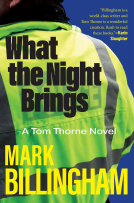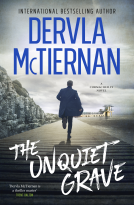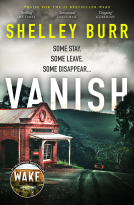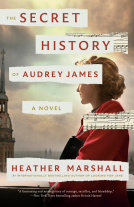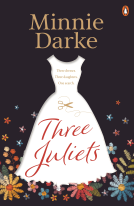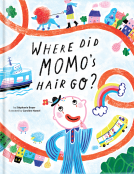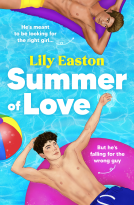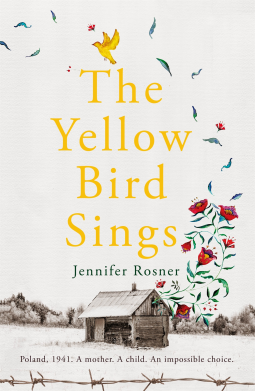
The Yellow Bird Sings
by Jennifer Rosner
This title was previously available on NetGalley and is now archived.
Send NetGalley books directly to your Kindle or Kindle app
1
To read on a Kindle or Kindle app, please add kindle@netgalley.com as an approved email address to receive files in your Amazon account. Click here for step-by-step instructions.
2
Also find your Kindle email address within your Amazon account, and enter it here.
Pub Date Feb 25 2020 | Archive Date Mar 29 2020
Pan Macmillan Australia | Picador
Talking about this book? Use #TheYellowBirdSings #NetGalley. More hashtag tips!
Description
Poland, 1941. After the Jews in their town are rounded up, Róza and her five-year-old daughter, Shira, spend day and night hidden in a farmer's barn. Forbidden from making a sound, only the yellow bird from her mother's stories can sing the melodies Shira composes in her head.
Róza does all she can to take care of Shira and shield her from the horrors of the outside world. They play silent games and invent their own sign language. But then the day comes when their haven is no longer safe, and Róza must face an impossible choice: whether to keep her daughter close by her side, or give her the chance to survive by letting her go . . .
The Yellow Bird Sings is a powerfully gripping and deeply moving novel about the unbreakable bond between parent and child and the triumph of humanity and hope in even the darkest circumstances. Edit
Marketing Plan
Poland 1941. A mother. A child. An impossible choice.
Poland 1941. A mother. A child. An impossible choice.
Available Editions
| EDITION | Paperback |
| ISBN | 9781529032437 |
| PRICE | A$29.99 (AUD) |
Links
Featured Reviews
3.5*/5
Ok, so. I'm not entirely sure what I think of this book. I desperately wanted to love it but it seems to miss something for me. It took over 100 pages for me to get into it. I found the barn section of the book to be quite repetitive, we get that they are in the barn and have to stay silent and the things that they must do (or not do) in order to survive. It's the same thing each day and night. I would have liked to have seen the story progress a bit faster in that section and then slow down when Shira went to the convent and her musical talent could flourish. I think the Nun's could have had a larger role in her character development. Then there is a huge gap in the timeline - which is necessary to keep the story for becoming 600 pages, but it could have been shorter at the start and filled in the gaps at the end. I would have loved to see how Shira developed her talent, and how she made it through her teenage years into adulthood with all the trauma she endured as a child.
Overall I enjoyed the book and would recommend you check it out if you enjoy WWII stories.
 Suzie E, Reviewer
Suzie E, Reviewer
I've read a lot of Holocaust material recently. It's not something I did in the past as I felt I wasn't up to the emotional trauma I knew it would cause me. The past few years I've been pushing boundaries and reading far more Holocaust books than I've ever read. This book hit me in the feels quite substantially.
In The Yellow Bird Sings we see a mother and daughter who are on the run from the Nazis. They have holed up in the loft of a barn and doing their best to stay still and quiet. While I was reading this I bore in mind another Holocaust book I read a few years ago, Zachor I Remember Will You, written by a friend. Reading that book made me wonder how people managed, how they kept quiet and how they kept occupied over so many days, weeks or even months. The Yellow Bird Sings partly answers some of these questions. With these answers I shall be forever in awe of anyone, at any time, who has had to stay quiet and still for such a long time.
This book raises more questions in my mind. The mother and daughter are separated. The daughter is sent to a convent, to safety, the mother heads off into the forest. We see how she survives. But the questions it raises for me is how long did people actually survive in the forests, either by themselves or in a group? The book shows that they would have had to dig holes to sleep in at night, in winter for warmth and year round for safety. The Nazis went through the forests checking for subversives and Jews, the author shows us that quite categorically in this book.
One thing I felt Rosner highlights in this book is how it is possible for families to stay connected even when they've been torn apart like this. The connection is rather tenuous but I feel it is there and music is the key in this family. Music that is played and taught seems to reverberate through this book and keeps the connection alive so that in the end there is a happy ending.
There is a little lacking in this book. I would have liked more of how both mother and daughter survived after the war. How they went about building up their lives from nothing. How they managed to have relationships after the trauma and how they somehow managed to get past that structural part of their lives where they hid in the loft, staying silent. One thing that went through my mind while reading is how having to hide like that must change one's psyche. Would Shira, the daughter, manage to talk to people or would she be forever scarred by the experience? Although, including any of this would make the book completely different. It would not be the book it is if these things were included. Maybe a sequel would be best, a sequel showing them starting and building new lives.
I was given this book by the publisher. I receive no monetary gain from this, just the warm fuzzies from having read a book close to the release date without having paid for it. And the warm fuzzies from being able to provide feedback about the formatting issues I experienced reading it on my Kindle app. And because it was released this year I get to include it in my Dymocks Reading Challenge for 2020 under the Book Published This Year category.
 LINDA L, Bookseller
LINDA L, Bookseller
Set in Poland during WWII, Róza and her young daughter Shira must hide in a loft in a barn to escape the Nazis. Shira, a music prodigy must stay still and quiet for hours, days, months. To help be quiet and still, she composes music in her head which her imaginary yellow bird sings. Rosa whispers stories to her of her grandparents and father to keep the memories alive and these stories Shira weaves into the tunes she writes in her head. When it becomes too dangerous to stay in the barn, Rosa reluctantly lets the farmers wife take Shira to a safe place, a convent run by the nuns for the orphaned children. Rosa herself heads into the woods to find safety from the relentless German troops. She has the Convents address and it is always her plan to reunite with her daughter.
This is a wonderful read, I read it in one sitting as I didn’t want to stop. Told from both Shira and Rosa’s points of view it’s another brutal look at the horrors of the war and the Nazi regime.
I highly recommend.
#netgalley #yellowbirdsings
Poland 1941
Roza and her six year old daughter Shira take refuge in Henryk and Krystyna's barn during the German occupation of their homeland. Roza sees her parents taken to the camps and her husband sent to work, never to return. Roza and her husband were musicians and creatives. At the start of the book Shira is fie years old. Roza and Shira remain hiding in the barn for over four months during which time they are provided for by Henryk and Krystyna, but it is not without emotional and personal cost. In an environment devoid of stimulation, Roza's sole aim is the welbeing of her daughter. She nurtures, educates and protects her as best she can in the face of the most significant adversity. Shira has an ear for music by virtue of her birthright and Roza begins to foster this talent.
Upon immediate risk of being discovered, Roza makes a decision that is the catalyst for both their futures. Shira is sent to an orphanage with Krystna's sister to escape impending capture and Roza flees into the countryside. Both are at the mercy of unknown dangers.
The Yellow Bird Sings is a book about the enduring bond between mother and child. The symbolism of the yellow bird endures throughout the novel - referring to the freedom and security Roz a and Shira (and perhaps the population of peoples) experienced but was gone. It symbolises the love lost and the moments of glimmering hope for a better future. The alternating points of view reflect Shira's wide-eyed naivety and child's simplicity versus Roza's sheer desperation and determination to survive.
This is an emotional novel with the historical backdrop of World War 2, the atrocities committed against Polish Jews, glimpses of Resistance movements, clandestine operations and anti-German uprisings. The early chapters are descriptive, detailing Roza's and Shira's captivity. They provide the reader with the foundation for the rest of this emotional story. Bare with those early chapters. It's well worth it. If you like historical fiction about this period, then this one is likely for you. I appreciated reading it. .
Rosner also provides a touching note regarding the backstory for penning the book.
Thank you to Netgalley, Pan Macmillan Australia, Picador and Jennifer Rosner for a free copy of this book to provide an opinion.
The Yellow Bird Sings was released on 25 February 2020.
An abridged review will be posted on my instagram page www.instagram.com/aplace_inthesun.
Fair warning: I’m sharing more quotes than usual with this one, because once again, I have been almost struck dumb by the beauty and brilliance of a novel. Isn’t it remarkable how the right combination of words strung together to articulate a certain story can have such a profound effect on some people? As you’ll now be familiar with from previous reviews, music reaches me at a whole other level when blended with literature. And so it is with The Yellow Bird Sings, a novel so achingly beautiful that it managed to destroy me while lifting my heart, the story sinking deep within, so much so, it’s taken me days to get my thoughts together for this review. They still might not be all too coherent, but I’ll give it a shot.
As we all live out our days within our own house and yard, venturing out only when necessary, many of us are feeling the walls closing in around us, an urge to do things we can’t, to visit places that are closed (not me, but I am seeing evidence of this on my social media and within my own house). Imagine though, that instead of having to stay in your own little patch of suburbia, you and your five year old child were instead contained to the loft of a barn, forced to hide under mounds of hay for hours on end, speaking only in whispers, eating, sleeping, relieving yourself, passing 24 hours, 7 days a week, in a small loft. No exercise. No entertainment. Only fear and mercy from those hiding you. Not for a day, a week, or even a month, but for more than a year. Four hundred and sixty odd days of this.
‘As soon as they spot her, the children swarm her at once and stare. Zosia shifts soundlessly from foot to foot, unaccustomed to being looked at. A lone girl greets her with “Hallo,” but Zosia’s voice chokes. Words, to Zosia, are like glass beads around her neck. If one were to break loose, they would all clatter to the floor and scatter, shatter the quiet that kept her and her mother alive, entwined beneath hay.’
That’s only the first part of this novel though, and as remarkable as it is, it just moves to a new level of remarkable once mother and daughter are no longer in hiding in the barn. This is a story of absolute endurance and survival, about making connections and alliances in an effort to save your life so that you can in turn save the life of the one you love; the only one you have left. The story splits about a third of the way in, and we then follow the separate journeys that Róza and her daughter are forced to take, further and further apart, connected by an invisible chain of daisies and a metaphorical little yellow bird that sings. There is no glamour in this story and the heroics are more of the quiet sort performed by people who allow morals and conscience to weigh greater than fear. Likewise, the prose is spare and to the point, although infused with a lyrical quality that makes it both easy to read and heartbreaking to decipher. The story itself is awe inspiring, based more on the collective war experiences of many, than just on one person.
‘All three of them are stained with dirt, their hair matted and itchy from lice, their faces sunken and gaunt, their lips swollen and cracking. As mirrors for one another, they offer no comfort. But the focus is on movement and on food. The thaw coaxes new shoots from the ground and new buds on plants that can be eaten. Their boots leave tracks in the mud. Each tries what she can to prevent it: Chana wears a pair of socks over her boots; Róża alters her stride in an effort to obscure the pattern and even walks on all fours at times. Since the soles of Miri’s boots have detached completely, she ties them on backward so that her tracks point in the opposite direction.’
So, where is the music? The music is in everything. Róza comes from a family of musicians, her father was a violin maker, she a cellist, her husband a violinist. Her daughter, at five, is a prodigy, something Róza only begins to get an inkling of before they are separated. Shira, for all the trauma she has had to endure in such a short space of time, locks much of herself away, but music is the one thing that she can’t block out. She has the fortune of being hidden in a convent, and this is where we see another group of heroes, vulnerable women protecting children from Nazis, all over Europe. It’s not all roses there, of course not, but if you keep the situation within context, the fear these nuns must have constantly felt, the responsibility for the safety of the children they bore. That manifested itself in many ways: cruelty in some, protectiveness in others, kindness in most. It is within this convent that Shira’s musical talent is unleashed.
‘A loud burst of real singing interrupts Zosia’s reverie. She twists around to see a group of nuns standing in two lines at the back of the church. Zosia doesn’t know the language of the song, but her heart delights at the joyous interweaving of voices, some deep and resonant, others high and bell-like. She stops crying and sits up. The sound is miraculous, like the broke-open sky— the sky they sat under, she and her mother, in the hills and the pastures, before all the walking stopped. Before the rafters and roofs trapped them in. Before her mother sent her away.’
You may have noticed from the quotes that Shira is not mentioned, but rather, they are about someone named Zosia. Zosia is Shira. And so is Tzofia. From the moment Shira leaves her mother, she becomes one of the displaced children of Israel. Her identity changed too many times for her to be traced. The loss for both her and her mother is profoundly affecting to read about and contemplate, for of course, this story takes its bones from history itself. From about halfway through until the end, I listened to classical music while reading, an album of string orchestra pieces. The experience of reading this story about a child surviving exile through music while listening to what I deemed as similar music was so incredibly moving, I can’t even describe to you how it made me feel.
‘Zosia loves the dramatic start! As she plays, she imagines costumed dancers circling one another, arms hooked, their eyes sparking with each playful pluck of strings. Zosia pulls her bow its full length, back and forth. When the music slows, briefly languid, she imagines the embrace; then speeding up, the flight of feet, raised arms , and twirling skirts; and on an extended note, long and trilling, her bird flitting above the dance, excited and happy.’
~~~
‘Tuning her violin hastily, she quarter turns, hardly noticeable, to avoid directly facing the soldiers and the children seated behind them. She puts bow to string to start— her arm steady despite how nervous she feels inside— and plays, the guiding rhythm a Romani march, soft and introspective. In her mind, her bird, solitary, restless, seeks out a resting place in the icy branches of a tree. His warbling notes reverberate in the night sky like a call and response: Are you there? Yes, I am here. Where? Right here. Settle yourself. Settle. A long, rising note, barely audible, ends the middle sections— a gloomy place to stop. Zosia takes a chance and continues, playing the final movement: upbeat and rousing, a showpiece. As she keeps watch on the intricate fingering and bowing, she really performs now, angling outward to the audience, aware of the sound echoing in the room, escalating , frenzied, and exciting. The last measures push Zosia, and she rises to their challenge with the quickest of strokes and wild plucking. She feels expansive as never before, legs rooted, bow-arm flying, her fingers dancing between the strings. She closes her eyes. The music soars beyond her own sensibilities, into the listening crowd. She finishes with a strong, dramatic bow stroke.’
~~~
‘Maybe Tzofia would never be one for words. But horsehair on string, bow-arm at just the right angle , with her violin, all that Tzofia holds inside floats out of her in long, even strokes. Rather than the mass of her own body, rather than words, choked and dry, it is the heft of the violin upon her shoulder, the smooth rest for her chin, the steady pressure demanded of her hand on the bow, that roots Tzofia in the world.’
This novel has one of the most incredible endings. Hard fought for, a long time coming, and a testimony to the power of music: the way it can reach out across time and experiences and connect two people who had given each other up as forever lost. The Yellow Bird Sings is one of those novels where you mourn at the end because you can’t ever experience it for the first time again.
Thanks is extended to Pan Macmillan Australia for providing me with a copy via NetGalley of The Yellow Bird Sings for review.
Poland 1941, Roza and her daughter Shira hide in a hayloft in a neighbor’s barn, they’re desperate, they don’t know what else to do or where else to go? Shira is five, she’s confused, and her dad Natan has disappeared, her grandparents as well and she now she can’t go home?
They stay hiding in the cold dirty barn for over a year, they are given food by the farmer’s wife Krystyna and the owner of the farm Henryk wants much more from Roza so they can stay. How far would you go to save your child, keep them safe and quiet? Roza invents a made up story based around a little yellow bird to keep Shira occupied, it’s has a musical element and Shira's family come from a musical background and she loves the tale.
It gets too dangerous for the mother and daughter to stay in the barn. It’s arranged for Shira to be hidden in a convent, her name is changed to Zosia and her hair is bleached blond to make her look less Jewish.
Roza decides her only option is to hide in the woods, Henryk has explained what mushrooms, roots and berries are safe for her to eat. He also shows her how to hide her foot prints; soon she’s cold, filthy, hungry, gaunt and lonely and misses Shira.
The one thing that keeps Roza going is her plan to be reunited with Shira as soon as she can and the knowledge her daughter is safe and she knows where she is.
Zosia is safe at the convent the nuns are nice to her, she misses her mother desperately, she starts having violin lessons and she’s extremely talented. Of course it’s dangerous times during a war and nothing lasts forever. Between the German soldiers constantly searching the convent for hidden Jewish children and the Russian army arriving in town, the convent is forced to evacuate when the town is bombed.
Roza and Shira are separated by war, but nothing can break the bond between a mother and her daughter. Based around true stories of Jewish children being hidden during WW II, The Yellow Bird Sings by Jennifer Rosner is an inspiring, heart breaking and beautifully written book.
I read it in a day, thanks to Pan Macmillan Australia for my copy and five stars from me.
